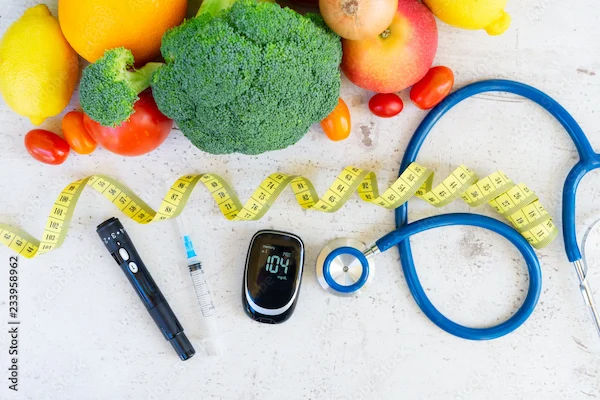Is Jaggery Good for Diabetes? Everything You Need to Know
Wondering if jaggery is good for diabetes? Learn about its glycaemic impact, benefits, and whether it fits into a diabetes-friendly diet. Discover tips for mindful consumption for better diabetes control.

Written by Dr Sonia Bhatt
Last updated on 3rd Jul, 2025
Jaggery is often considered a healthier alternative to refined sugar, especially in many traditional diets. It is widely used in various parts of the world for its natural sweetness and rich flavour. However, if you have diabetes, you might be wondering whether jaggery is a safe option or if it could impact your blood sugar levels. This article will explore jaggery, how it affects diabetes, and whether it should be included in a diabetes-friendly diet.
What is Jaggery?
Jaggery is a traditional sweetener made from sugarcane juice or palm sap. Unlike refined white sugar, jaggery is less processed and retains more of its natural molasses, which gives it a richer flavour and darker colour. Apart from sugar, the other nutrients present in jaggery are:
???
The Glycaemic Index of Jaggery
The glycaemic index (GI) measures how quickly a carbohydrate-containing food raises blood glucose levels after consumption. Foods with a high GI cause a rapid spike in blood sugar, while foods with a low GI lead to a slower, more controlled rise.
Jaggery has a moderate to high glycaemic index, which typically ranges between 60 to 84, depending on the type of jaggery and its preparation. This means that jaggery can cause blood sugar levels to rise at a moderate pace, potentially affecting people with diabetes who need to control their glucose levels carefully.
Though jaggery may not raise blood sugar as quickly as refined sugar, it still has the potential to contribute to elevated glucose levels if consumed in large quantities. People with diabetes must, therefore be cautious about their portion sizes.
How Does Jaggery Affect Diabetes?
The primary concern for individuals with diabetes is how foods impact blood sugar levels. While jaggery does contain some beneficial minerals, its carbohydrate content is still significant and can affect blood sugar. Here's how jaggery might impact diabetes:
1. Jaggery is Made up of Simple Sugars
Jaggery is made up primarily of sucrose, a simple sugar, which is rapidly absorbed into the bloodstream after consumption. Even though jaggery is less processed than refined sugar and contains small amounts of micronutrients, it may behave similarly to regular sugar in terms of raising blood sugar levels. However, it may depend on the type of jaggery used and the amount of jaggery eaten. For instance, palm jaggery has 35 GI, while the GI of sugarcane jaggery is around 85, making it a poor choice for diabetics. Similarly, excessive consumption of jaggery (either type) can result in a blood sugar spike, especially in diabetics.
2. The Fibre Content in Jaggery
Jaggery contains small amounts of fibre due to its unrefined nature. Fibre helps slow down the digestion and absorption of sugar, which can reduce the immediate impact on blood glucose levels. However, the fibre content in jaggery is relatively low compared to other high-fiber foods like vegetables, whole grains, or legumes. The fibre in jaggery alone is unlikely to make a significant difference in blood sugar control.
3. Presence of Micronutrients in Jaggery
While jaggery contains trace amounts of minerals like iron, magnesium, and potassium, it is not a substantial source of these nutrients compared to other foods. For example, iron from jaggery is not absorbed as efficiently as iron from other sources like leafy greens, legumes, or fortified foods. These nutrients might offer some health benefits, but they are unlikely to outweigh the glycaemic effect of jaggery in individuals with diabetes.
Is Jaggery Better Than Refined Sugar for Diabetes?
While jaggery is often touted as a healthier alternative to refined sugar due to its minimal processing and presence of nutrients, it is still not a safe option for people with diabetes when consumed in large quantities. Here’s a comparison of jaggery and refined sugar:
Nutrient Content: Jaggery contains more vitamins and minerals than refined sugar, particularly small amounts of iron and magnesium, but these nutrients are in relatively low concentrations. The overall nutritional benefits of jaggery are not enough to justify its inclusion in a diabetic diet when other healthier alternatives exist.
Glycaemic Impact: Both jaggery and refined sugar are high in simple sugars and can lead to blood sugar spikes. Jaggery may cause a slower increase in blood sugar compared to refined sugar, but it still has a high glycaemic index and can affect glucose control in people with diabetes.
Can People with Diabetes Eat Jaggery?
The short answer is yes, but only in moderation. Here are a few important things to keep in mind:
1. Portion Control is Key
If you have diabetes, you can include small amounts of jaggery in your diet occasionally, but it’s important to watch portion sizes. One or two small pieces of jaggery (about one teaspoon) can be part of an overall balanced meal or snack. However, large quantities can lead to blood sugar spikes and make it harder to manage your diabetes.
2. Monitor Blood Sugar Levels
Monitoring your blood sugar levels regularly is essential to see how your body responds to jaggery. Everyone's body reacts differently to food, and some people with diabetes may experience more significant spikes in blood sugar after consuming jaggery.
3. Consider Healthier Alternatives
If you are looking for a natural sweetener that has a lower glycaemic index, consider alternatives like stevia, monk fruit, or small amounts of cinnamon for sweetness. These options do not raise blood sugar levels and are considered safe for most people with diabetes.
4. Focus on a Balanced Diet
For overall diabetes management, focus on a diet that includes whole grains, fibre-rich foods, lean proteins, and healthy fats. The key is to minimise refined sugars and processed foods that can cause blood sugar spikes.
Tips for Using Jaggery in a Diabetes-Friendly Diet
If you decide to incorporate jaggery into your diet, here are some tips to help you do so safely and mindfully:
Use as a flavouring: Instead of using large amounts of jaggery to sweeten a dish, use a small amount to enhance flavour. You can use a small quantity of jaggery in tea, smoothies, or desserts while balancing it with other healthy ingredients.
Combine with protein or healthy fats: When consuming jaggery, pair it with foods rich in protein or healthy fats, such as nuts, seeds, or dairy. This can help slow down the absorption of sugar and reduce the overall glycaemic impact.
Limit intake: Stick to small amounts of jaggery, and make it an occasional treat rather than a regular part of your diet. It’s important to remember that moderation is key to managing diabetes effectively.
Conclusion
Jaggery, while a less processed sweetener than refined sugar, is still a high-glycaemic food that can raise blood sugar levels. People with diabetes should be cautious about consuming jaggery, especially in large amounts. Though it offers some nutritional benefits, these are outweighed by its potential to cause blood sugar spikes.
If you have diabetes and enjoy the taste of jaggery, it’s best to consume it in small amounts and monitor your blood sugar levels to ensure it does not negatively impact your health. For better blood sugar control, focusing on a diet that prioritises low-glycaemic, high-fibre foods and limits the intake of sweeteners like jaggery and sugar is recommended.
Always consult with a healthcare provider or dietitian before making significant dietary changes, as they can provide personalised advice based on your health needs.
Consult Top Diabetologists
Consult Top Diabetologists

Dr. Vivek D
General Physician
4 Years • MBBS
Bengaluru
PRESTIGE SHANTHINIKETAN - SOCIETY CLINIC, Bengaluru

Dr. Anand Ravi
General Physician
2 Years • MBBS
Bengaluru
PRESTIGE SHANTHINIKETAN - SOCIETY CLINIC, Bengaluru

Dr Syed Mateen Pasha
General Physician
2 Years • MBBS
Bengaluru
PRESTIGE SHANTHINIKETAN - SOCIETY CLINIC, Bengaluru

Dr. Johnson. S
General Practitioner
7 Years • MBBS MD(Preventive and social Medicine)
Pune
Apollo Clinic, Nigdi, Pune

Dr. Dhanraj K
General Physician/ Internal Medicine Specialist
25 Years • MBBS, MD Internal Medicine - Osmania Medical College, Hyderabad
Hyderabad
Apollo Hospitals Jubilee Hills, Hyderabad
(400+ Patients)


